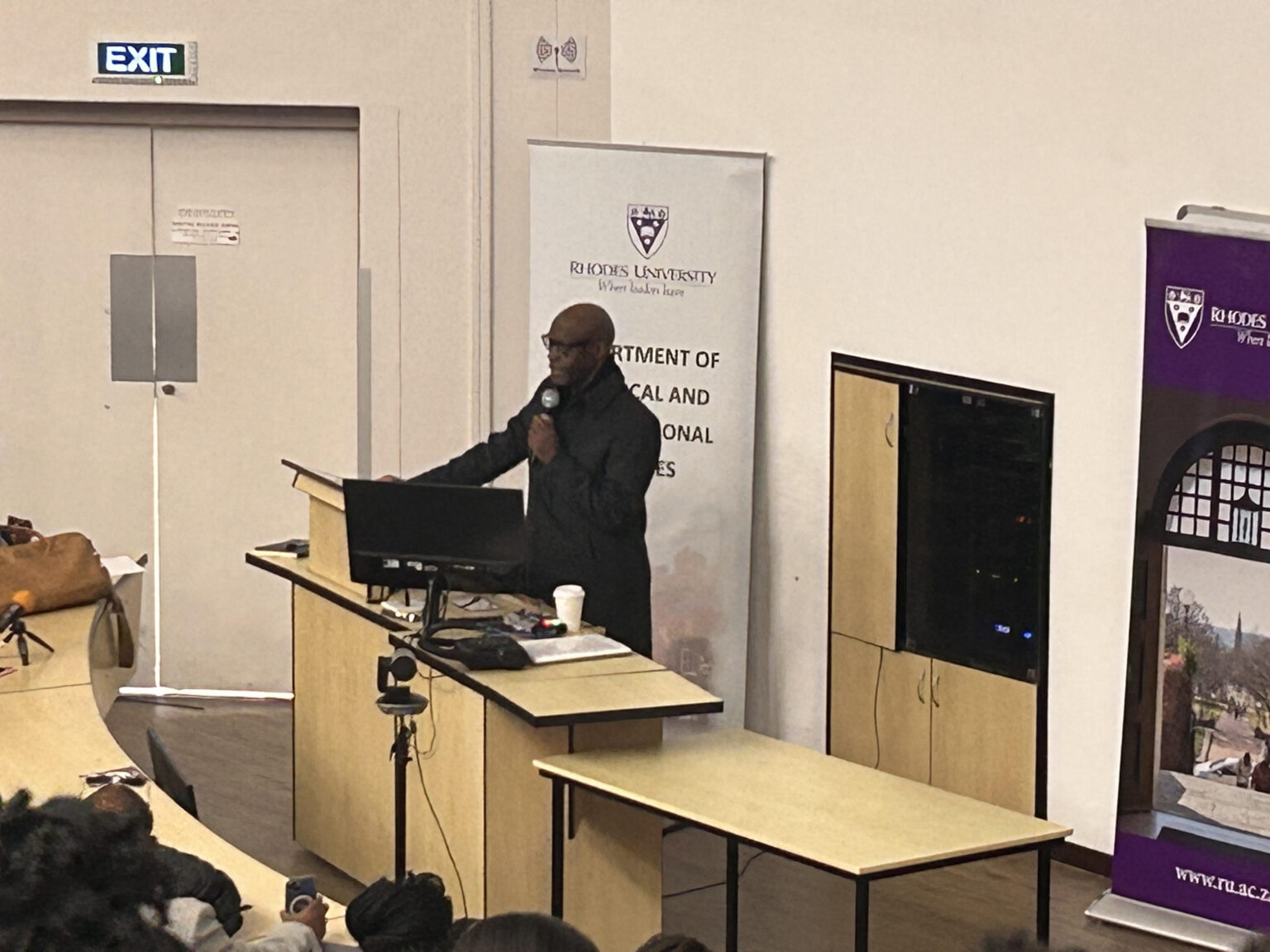By Ruvesen Naidoo
South Africa faces an unavoidable reality with the surge in load shedding affecting the lives of its citizens. Addressing this crisis, Matshela Koko, Eskom’s former interim group CEO, emphasised crucial solutions during a recent teach-in organised by Rhodes University’s Politics department on 10 July. Building a skilled workforce, efficient maintenance management, improved operations, and customer-centric practices are essential steps towards ending load shedding in the country, he said.
Koko, who is currently the managing director of Matshela Energy, has worked in the energy industry for over 25 years. But he is not without a cloud hanging over his head. Although he worked at Eskom for over 20 years, he resigned in 2018 after criminal charges of fraud and corruption were laid against him. He is appearing in court to face the charges on 2 September, and told the teach-in: “It is good that I will be in court. The court is an arbitrator, and they have set themselves up for failure”.
At the teach-in, Koko said, “The challenges in the electricity sector are not new and have not changed since 2010. In fact, we are in a better position now than we were in 2010,” arguing that the present surplus in generational capacities can in fact meet the demand of electricity. He said load-shedding was a leadership issue, not a technical issue, and the development of renewable energy power plants was key. However, “We fail to plan for them”, Koko said.
Dozens of students attended the teach-in and engaged in a vigorous debate with Koko. When one whether Eskom should be privatised or not, Koko’s response was, “I don’t think so; the state has the obligation of providing electricity”. Another student said, “From the years that there was no load shedding, there seemed to be no burning of diesel. Now we’ve been burning the most diesel, and there are certain individuals that seem to be benefitting from that.”
Politics Department lecturer and organiser of the teach-in, Dr Bongani Nyoka, said, “The teach-in is the flagship public lecture series of the Politics Department, although it is funded by the vice-chancellor’s office. It started in the early 2000s to bring together experts and practitioners to address a particular subject from various perspectives over four back-to-back public lectures. The topics are usually controversial and/or current affairs – from global warming to the Russia-Ukraine war, to the war in Mozambique”.
“In the past, we have had government officials, politicians, diplomats, activists, [and]intellectuals as our guest speakers. This year’s Teach-In was on the ongoing energy crisis, and we brought together interested individuals who were either directly involved at Eskom or those who are critical of what is happening at Eskom. I could not think of a more topical subject than load shedding. My hope is that with the Teach-In, students were able to learn and ask direct questions to speakers who worked at Eskom and/or ask for solutions to those who are advocating alternative solutions to what is currently happening at Eskom,” Nyoka added.


